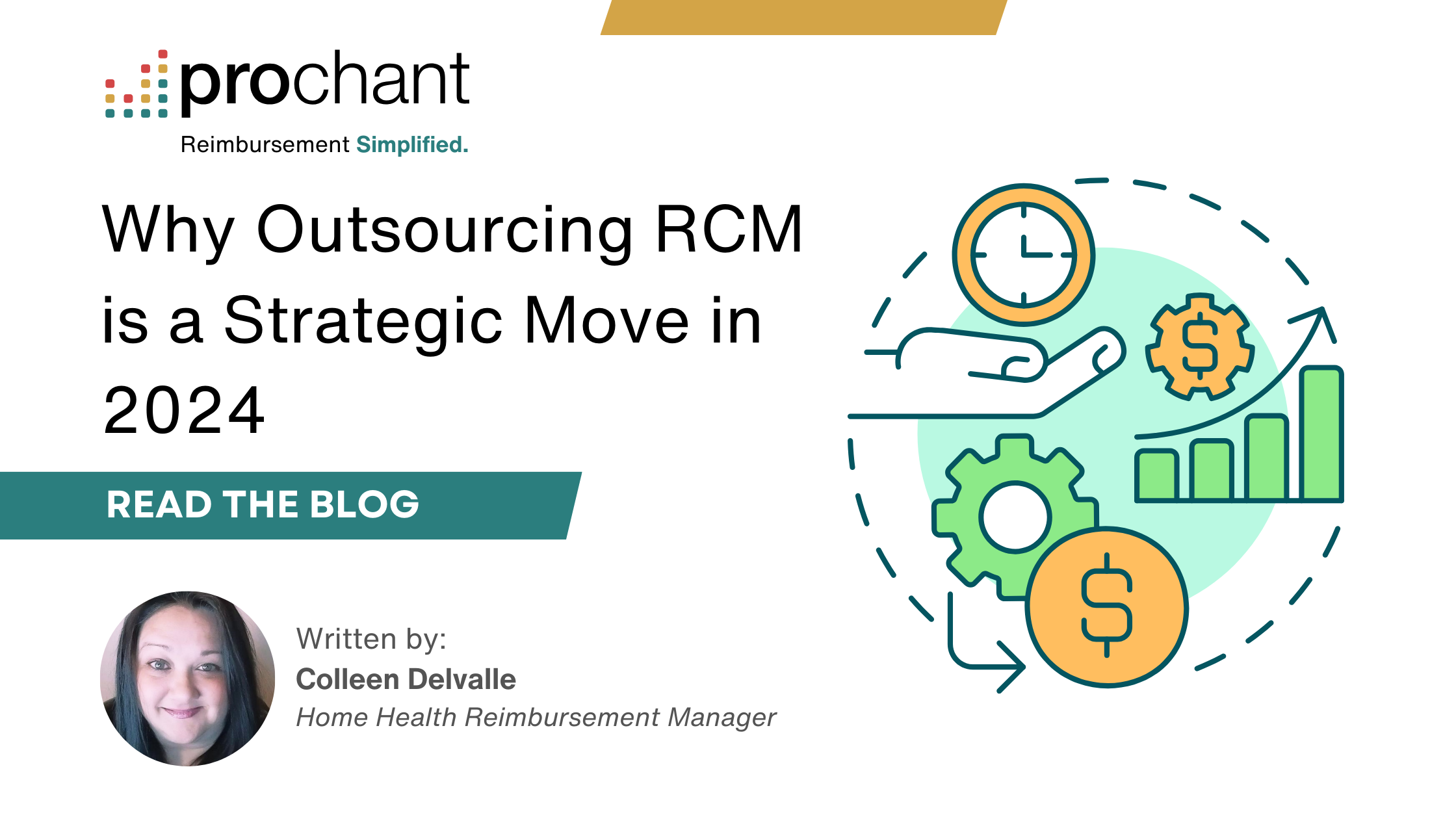In the dynamic landscape of 2024, outsourcing or co-sourcing your revenue cycle management (RCM) in the home health business is not just a trend, it’s a strategic move. With the complexities of healthcare regulations and the need for specialized knowledge in billing and insurance processes, outsourcing or co-sourcing RCM allows healthcare providers to focus on their core mission: delivering exceptional patient care. Here are the the top four reasons why outsourcing your RCM is a strategic move:
1. Navigating Complex Healthcare Regulations
Healthcare regulations are constantly evolving, and keeping up with these changes can be a daunting task for home health providers. Non-compliance can lead to costly penalties and lost revenue. By partnering with RCM specialists like Prochant, home health businesses can ensure they stay compliant with the latest regulations. These experts are well-versed in the intricacies of healthcare laws and can adapt quickly to changes, safeguarding the financial health of the organization.
2. Expertise in Billing and Insurance Processes
Billing and insurance processes in healthcare are notoriously complex. Errors in coding, claim submission, and follow-ups can result in delayed or denied reimbursements. RCM specialists bring a wealth of experience and knowledge to the table, ensuring that claims are processed accurately and efficiently. This expertise translates into timely reimbursements, which are crucial for maintaining cash flow and financial stability.
3. Optimizing Billing Workflows to Maximize Revenue
One of the primary benefits of outsourcing or co-sourcing RCM is the potential for maximizing revenue. RCM experts employ advanced technologies and best practices to optimize the revenue cycle. They can identify and rectify inefficiencies, reduce billing errors, and ensure that all services provided are billed correctly. This proactive approach leads to increased revenue capture and reduced administrative burdens for home health providers. Additionally, outsourcing or co-sourcing RCM allows home health providers to streamline their operations. By delegating the complex and time-consuming tasks of revenue cycle management to experts, providers can focus on improving their core services. This optimization leads to better resource allocation, enhanced productivity, and ultimately, a higher quality of patient care.
4. Reinvesting in Patient Care
The financial benefits of outsourcing or co-sourcing RCM extend beyond the balance sheet. With improved cash flow and reduced administrative overhead, home health providers can reinvest in their services and patient experiences. This could mean hiring additional staff, upgrading equipment, or expanding service offerings. Ultimately, these investments contribute to better patient outcomes and satisfaction.
Embracing the Future of Healthcare
As we navigate the future of healthcare, embracing the advantages of outsourcing or co-sourcing RCM can be the key to sustainability and growth in the home health sector. The demand for home health services is on the rise, driven by an aging population and a preference for at-home care. To meet this growing demand, providers need to operate efficiently and effectively. By partnering with RCM specialists, they can ensure their financial health while focusing on their primary mission of delivering exceptional patient care.
The ultimate goal of outsourcing or co-sourcing RCM is to build a more efficient and patient-centric healthcare system. By leveraging the expertise of RCM specialists, home health providers can navigate the financial complexities of the healthcare industry with confidence. This collaboration allows providers to dedicate more time and resources to patient care, improving the overall healthcare experience.
In conclusion, outsourcing or co-sourcing revenue cycle management is a strategic move that can drive success in the home health sector. It enables providers to navigate complex regulations, optimize operations, maximize revenue, and, most importantly, deliver exceptional patient care. By prioritizing patient care and entrusting financial management to experts, home health businesses can thrive in the dynamic healthcare landscape of 2024 and beyond.

